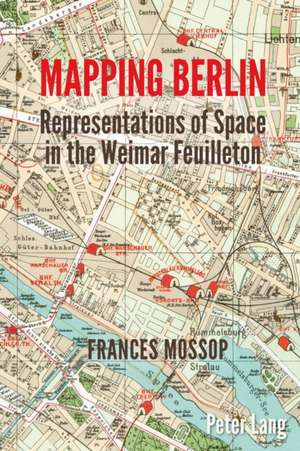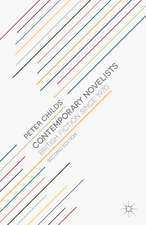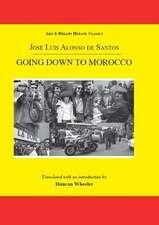Mapping Berlin
Autor Frances Mossopen Limba Engleză Paperback – 26 aug 2015
The Weimar period (1919-1933) generated an immense wealth of writings that recorded impressions of daily life in the German capital of Berlin. Literary journalism, in particular, experienced a surge in popularity at the time and played a vital role in informing the public about the 'new world' that was emerging after the First World War.
This book offers an original approach to the German feuilleton of the 1920s and early 1930s by exploring how authors engaged with the space of Berlin on the page. Drawing on recent spatial theory, the author focuses on the role of geography and cartography in the journalistic oeuvres of Joseph Roth, Gabriele Tergit and Kurt Tucholsky. Central to this study is an interdisciplinary and comparative approach to the examination of their feuilleton articles by foregrounding spatiality within the context of literary analysis. The book demonstrates how Roth, Tergit and Tucholsky depict contemporary concerns through spatial representation, thus yielding new insights into the authors' narration of the history, society and politics of the Weimar Republic.
Preț: 461.11 lei
Preț vechi: 598.84 lei
-23% Nou
Puncte Express: 692
Preț estimativ în valută:
88.23€ • 91.94$ • 73.06£
88.23€ • 91.94$ • 73.06£
Carte tipărită la comandă
Livrare economică 03-17 aprilie
Preluare comenzi: 021 569.72.76
Specificații
ISBN-13: 9783034318341
ISBN-10: 3034318340
Pagini: 224
Dimensiuni: 147 x 224 x 13 mm
Greutate: 0.3 kg
Editura: Peter Lang Gmbh, Internationaler Verlag Der W
ISBN-10: 3034318340
Pagini: 224
Dimensiuni: 147 x 224 x 13 mm
Greutate: 0.3 kg
Editura: Peter Lang Gmbh, Internationaler Verlag Der W
Notă biografică
Frances Mossop holds a PhD in German from the University of Exeter. She was a recipient of a doctoral studentship awarded by the Arts and Humanities Research Council. Her interests include twentieth-century European history, literary journalism of the nineteenth and twentieth centuries in Germany, and German literature and culture of the interwar period.
Cuprins
Contents: The Prominence of Space: Representative Sites in the Weimar Feuilleton ¿ The Geography of Joseph Roth¿s Berlin ¿ Gabriele Tergit¿s Personal Topographies ¿ Spatiality in Kurt Tucholsky¿s Feuilleton Articles.










